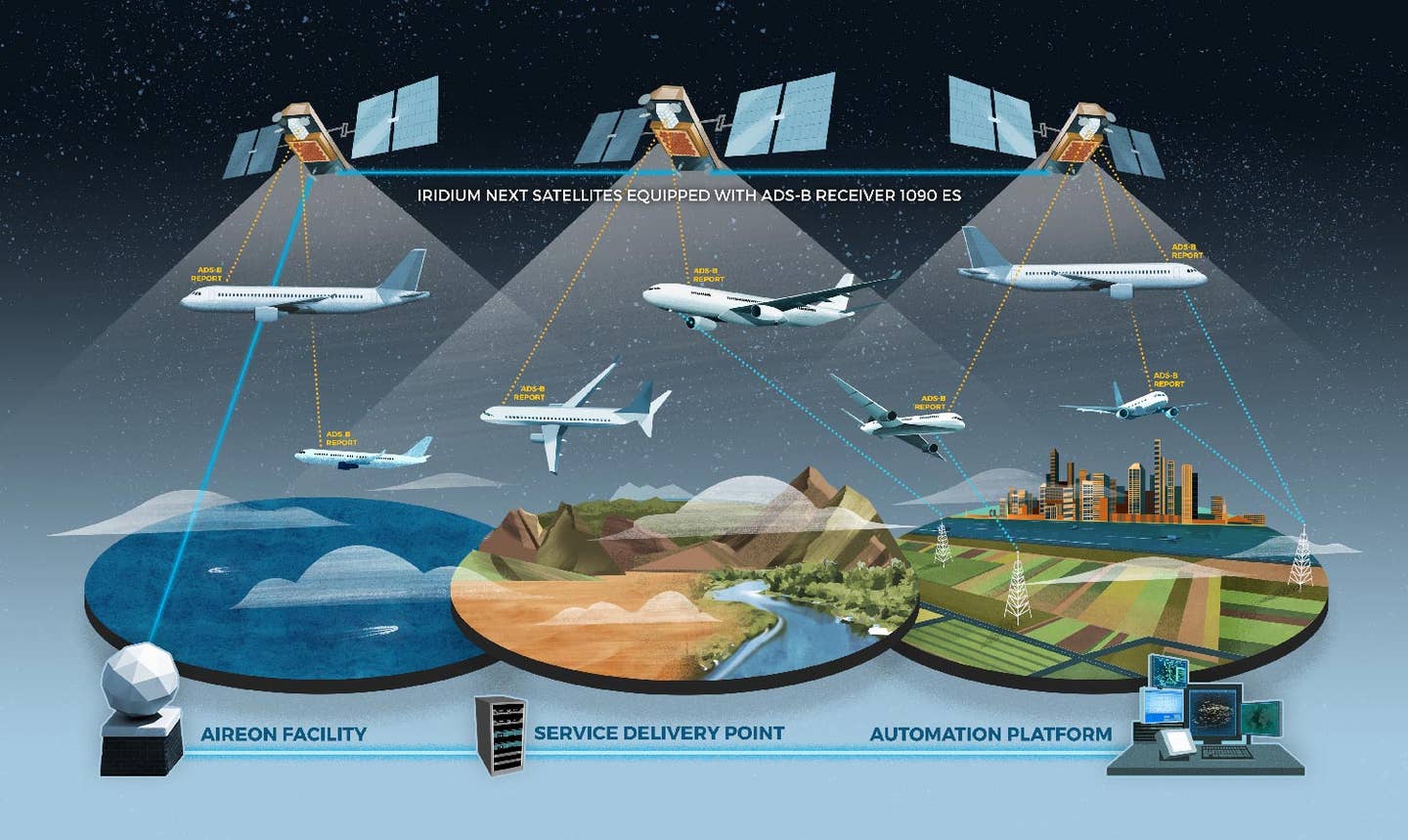
Aireon ALERT requires only a 1090 Mhz. ADS-B Out signal and a working transponder. Courtesy Aireon
Whether it was because the transponder was turned off or some other kind of onboard failure, no one has been able to figure out what happened to Malaysian Airlines flight 370 more than five years after the Boeing 777 went missing in South East Asia.
Now, Aireon's new Aircraft Location and Emergency Response Tracking (ALERT) service can provide Air Navigation Service Providers (ANSPs), commercial aircraft operators/airlines, aviation regulators and search and rescue organizations the last known position of any Automatic Dependent Surveillance-Broadcast (ADS-B) equipped aircraft anywhere on the planet.
Many of the world's aircraft are already fitted with 1090 Mhz. ADS-B technology that will allow for identification of an accurate position for an aircraft that is in an apparent state of distress or experiencing a loss in communication.
Operated by the Irish Aviation Authority (IAA) from their North Atlantic Communications Centre in Ballygirreen, County Clare, Ireland, Aireon ALERT is enabled by the Aireon system, the world's first global air traffic surveillance service.
Prior to Aireon becoming operational, only 30 percent of the Earth's surface was monitored through conventional ground systems, leaving over 70 percent without any real-time air traffic surveillance. With Aireon ALERT, registered users now have access to exact location information for aircraft in distress, on-demand, which will dramatically benefit global emergency response efforts.
Aireon CEO Don Thoma said, "Aireon ALERT can provide the most accurate and precise aircraft locating data for emergency and distress situations, free of charge. As the operator of the world's only global aircraft surveillance system, we recognize our unique position to provide such a critical service to the aviation community, and see it as our duty to provide this data to the proper authorities to assist in emergency situations."

Subscribe to Our Newsletter
Get the latest FLYING stories delivered directly to your inbox






